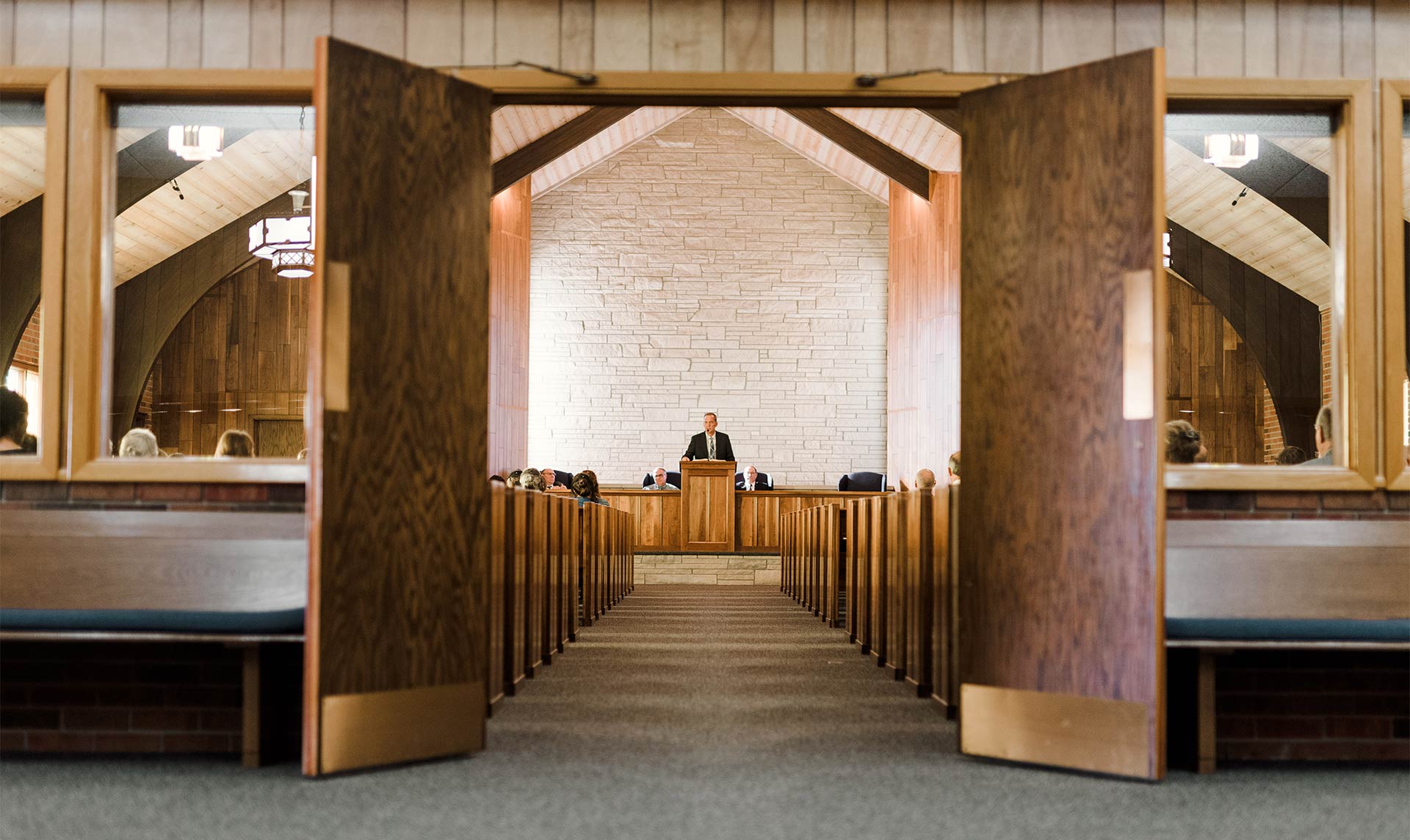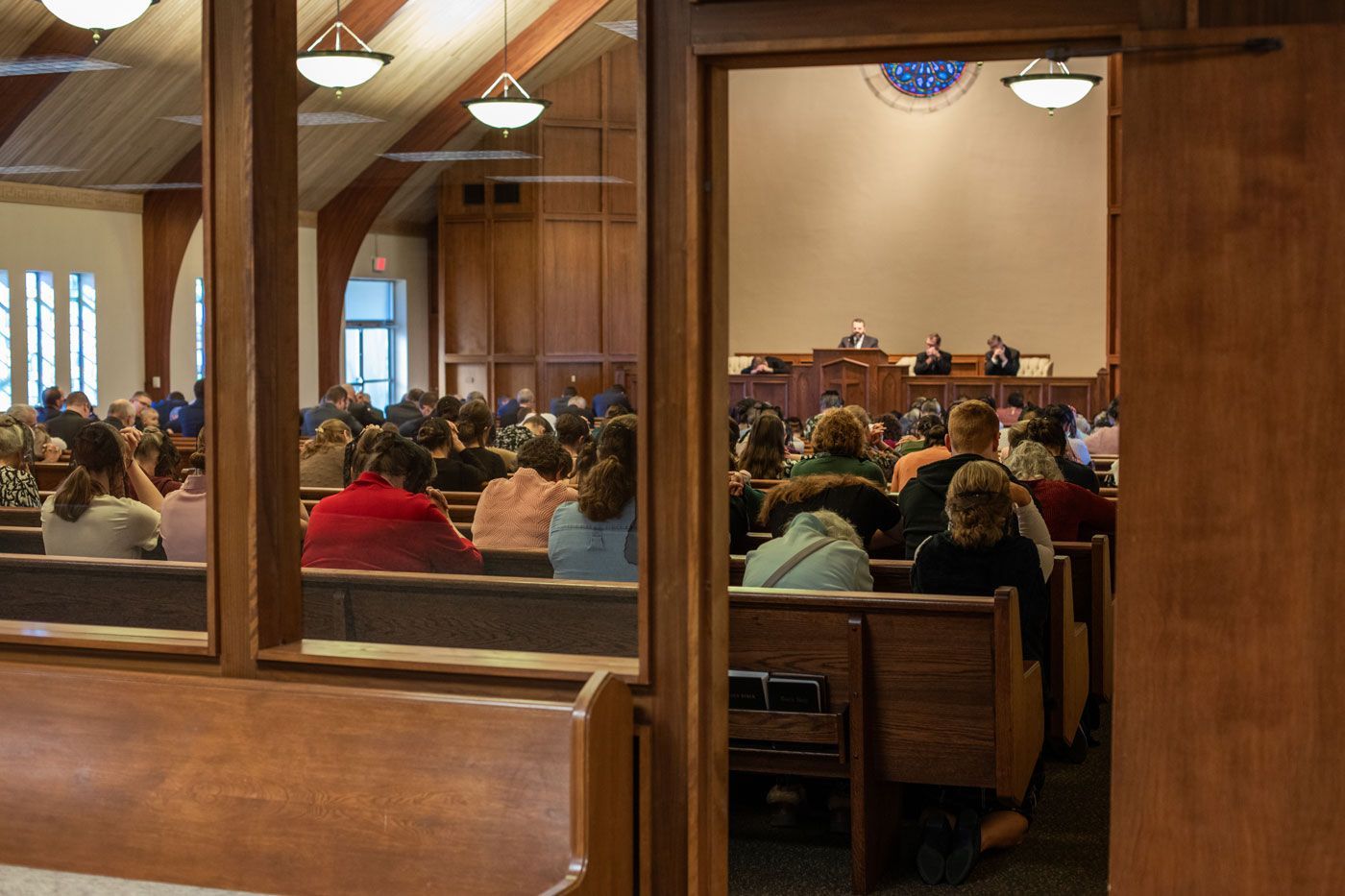Is AI for Christians?
“Thou shalt love the Lord thy God with all thy heart, and with all thy soul, and with all thy mind, and with all thy strength…and…Thou shalt love thy neighbor as thyself.” Mark 12:30-31

Emerging technologies can arrive quickly, shape habits subtly, and then feel indispensable. Many remember when the internet seemed optional. Now it touches almost every hour of the day. Artificial intelligence (AI) is the latest wave. This moment is marked with questions, and that may be a gift. It allows thoughtful, scripture-based guidance before our habits harden. As a church family, we seek wisdom, not alarm. “If any of you lack wisdom, let him ask of God… and it shall be given him.”[1]
What is new about AI, and why it matters
AI is not merely, “more of the same.” Several features make it transformative:
· Fluent conversation: These systems handle everyday language and cultural references with ease, which can make them feel personal and wise.
· Relational simulation: AI mimics emotional awareness: remembering preferences and replying with an empathetic tone.
· Convincing media: Some models generate images, music, and short videos that echo human creativity.
Because AI imitates relationships and wisdom, it may tempt us to outsource activities that shape the heart. That is where discernment is most needed. “Keep thy heart with all diligence; for out of it are the issues of life.”[2]
Begin with people, not products
Technology refers to tools, devices, systems, and methods developed by humans to solve problems, perform tasks, or achieve goals more efficiently. When approaching any technology, the first question may be, “Is this tool good or bad?” A more helpful question may be, “What are people for, and how will this tool help fulfill my purpose?” Jesus answers this. We are heart-soul-mind-strength people designed for love of God and neighbor. That vision gives us a practical check for everyday choices:
Great Commandment Compass
· Heart: Will this use of AI grow emotional maturity and the will to do good?
· Soul: Will it deepen communion with God and connection with others?
· Mind: Will it increase wisdom and not just information?
· Strength: Will this build embodied presence, patience, and perseverance?
· And above all, does it serve love?
If a specific use of AI strengthens who we are made to be and do, it may be a fitting help. If it weakens that, we should be cautious and avoid misuse.
Use it as an aid, not a replacement
Core practices like prayer at the table, conversations in our homes, and visits to hospital patients are important work. Digital tools should be servants that set the table, not the meal itself. A calendar reminder can support a visit; it does not make the visit. A clean transcript can help review a meeting; it does not replace listening well and honoring others in the meeting. An AI summary can gather viewpoints on a passage of scripture; it does not replace slow, prayerful wrestling with the Word. When the aid begins to push out the essential, it is time to step back. “Prove all things; hold fast that which is good.”[3]
---------------------------------------------------- Continued portion below ----------------------------------------------------
Spiritual work requires the Holy Spirit
All of us carry different responsibilities, but AI cannot do some tasks.
· Soul-care work: prayer, scripture meditation, confession, worship, stillness before God. These involve souls; they are not tasks to speed up, but moments that call for presence over productivity.
· Relational work: reconciliation, mentoring, hospitality, fellowship. These require patience, listening, and the risk of misunderstanding, all means through which God grows us into people of love.
There is also process and paperwork: formatting a letter, sorting data, drafting schedules, translating a note, or producing a first summary. AI can often reduce friction here. The main idea is this: if the task bears the weight of souls, keep it human.
A gentle caution about shortcuts
Modern tools promise “more with less.” That is appealing, especially when time is short and needs are many. But growth in Christlikeness ordinarily comes with weight and resistance. Our Lord calls us to take up our cross daily. He also reminded Paul that his strength is made perfect in weakness. If a tool continuously circumvents the small pressures that teach patience, courage, prayer, and love, the apparent gain may become a hidden loss, leaving us unprepared when the hour calls for character, not convenience.
Simple helps to stay grounded
· Set aside a time to be device-free. Instead of risking distraction from a screen, sit before God with an open Bible and an open heart. We often meet the Lord in quiet waiting rather than prompting speedy responses.[4]
· When sin weighs on the conscience, talk to a trusted brother or sister, not a chatbot. The Lord has given one another for prayer and healing.[5]
· Deliver a meal, sit with the grieving, teach a child, mow a lawn. These acts resist the drift toward efficiency-only living and train the heart to love.
· Choose at least one day a week to step away from AI and similar aids. Let the mind renew in attentiveness to human connections and conversations.
Role-specific considerations
· Parents: Set a simple family plan. Determine where and when digital tools can be used. Co-use with younger children. Post the Great Commandment Compass where all can see.
· Students: Use AI for planning and checking, not for thinking and growing. Generate an outline and write the paper yourself. Practice hard things: memorize, outline by hand, work problems without a solver, present aloud. This builds a resilient mind.
· Minister and teachers: AI may be useful as a concordance or clerk. It may speed desk work. It should not replace study, prayer, discernment, or your voice. When its help goes beyond formatting, be transparent and cautious.
· Employers and workers: Use AI to reduce administrative friction (drafting, summarizing, and organizing). Keep customer care, conflict resolution, and relationship-building human and face-to-face whenever possible.
A weekly heart-check
Before another week begins, you might prayerfully ask:
· What time did these tools save me, and how did I spend it? On prayer, Scripture, or care for someone?
· What did they cost me? Attention, patience, prayer, or being truly present with family and others?
· Did my use this week draw me toward love of God and neighbor, with heart, soul, mind, and strength?
· Did I outsource to a screen something that really needed my own hands or voice?
· If needed, what’s one small boundary I will practice this coming week?
“Search me, O God, and know my heart… and lead me in the way everlasting.”[6]
The church is not against technology; the church is for the formation of Christ in people. With the living Word to guide and help us, we can receive useful tools without surrendering sacred work. We can let new technology strengthen the good work we do, while keeping the cornerstone of our life together solidly prayerful and personal. May the Lord grant wisdom to steward new tools in ways that honor him and others and train us all for love. “Behold I send you forth as sheep in the midst of wolves; be ye therefore wise as serpents, and harmless as doves.”[7]
[1] James 1:5
[2] Proverbs 4:23
[3] 1 Thessalonians 5:21
[4] Psalm 130:5-6
[5] James 5:16
[6] Psalm 139:23-24
[7] Matthew 10:16









